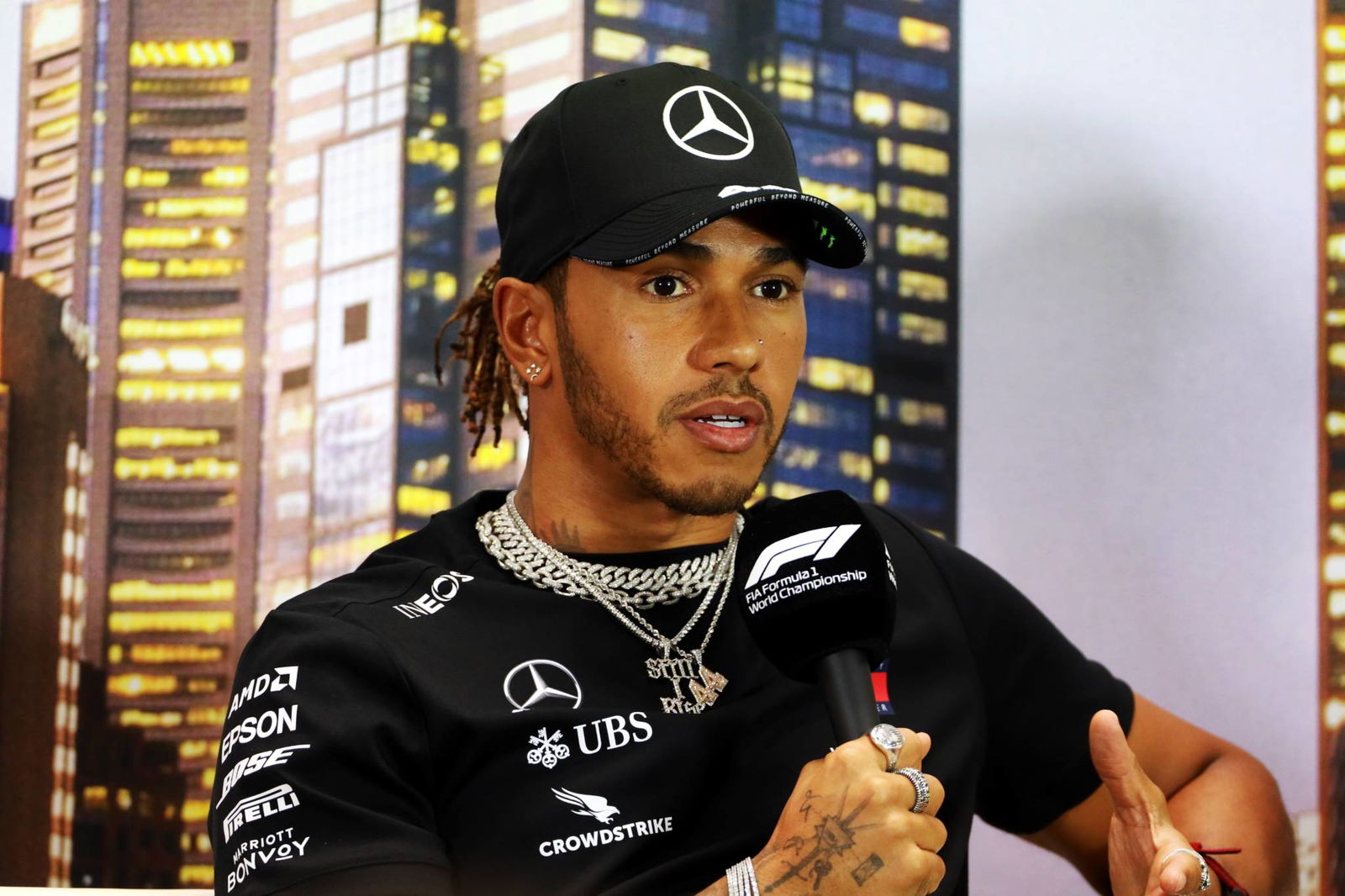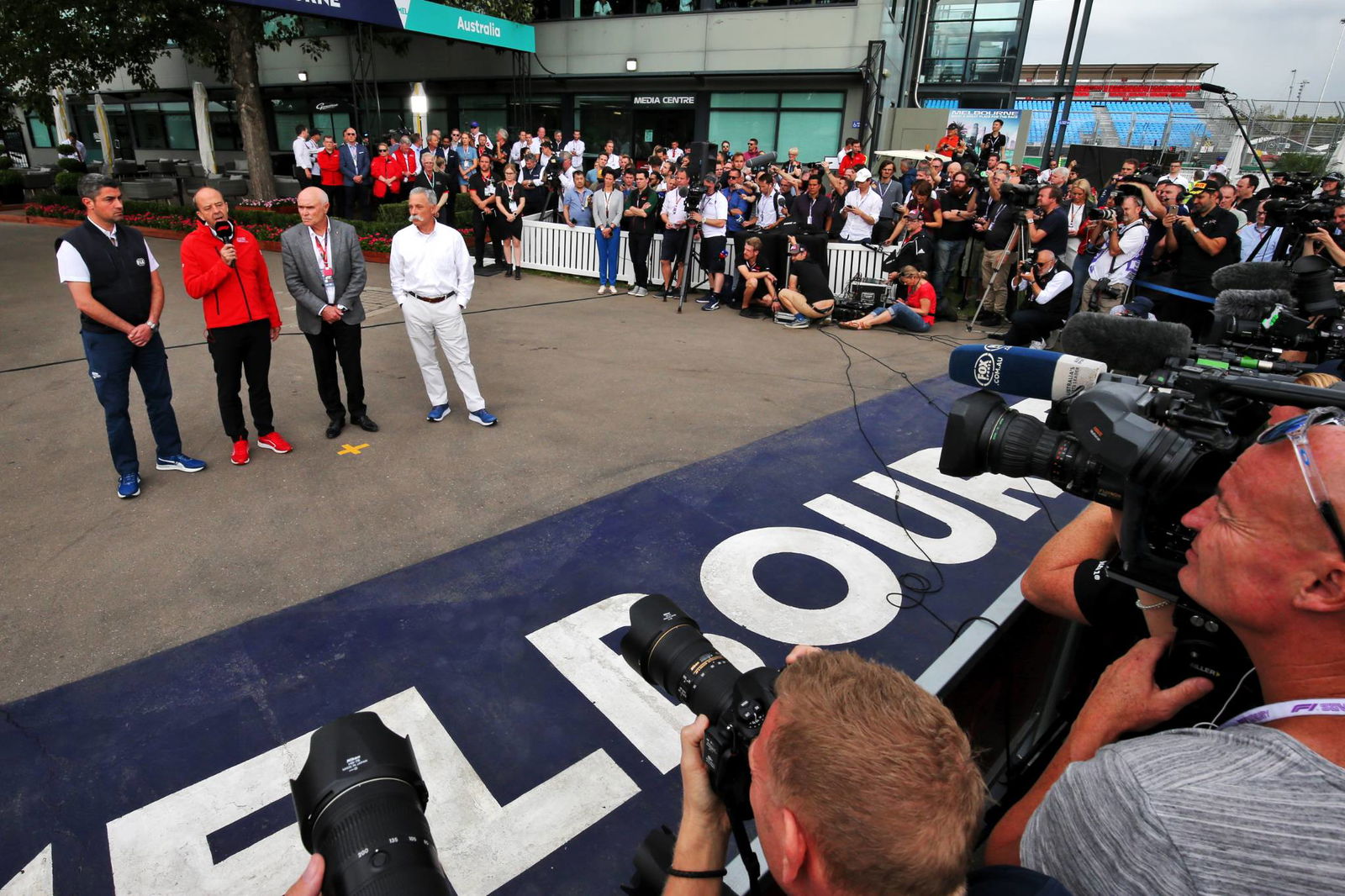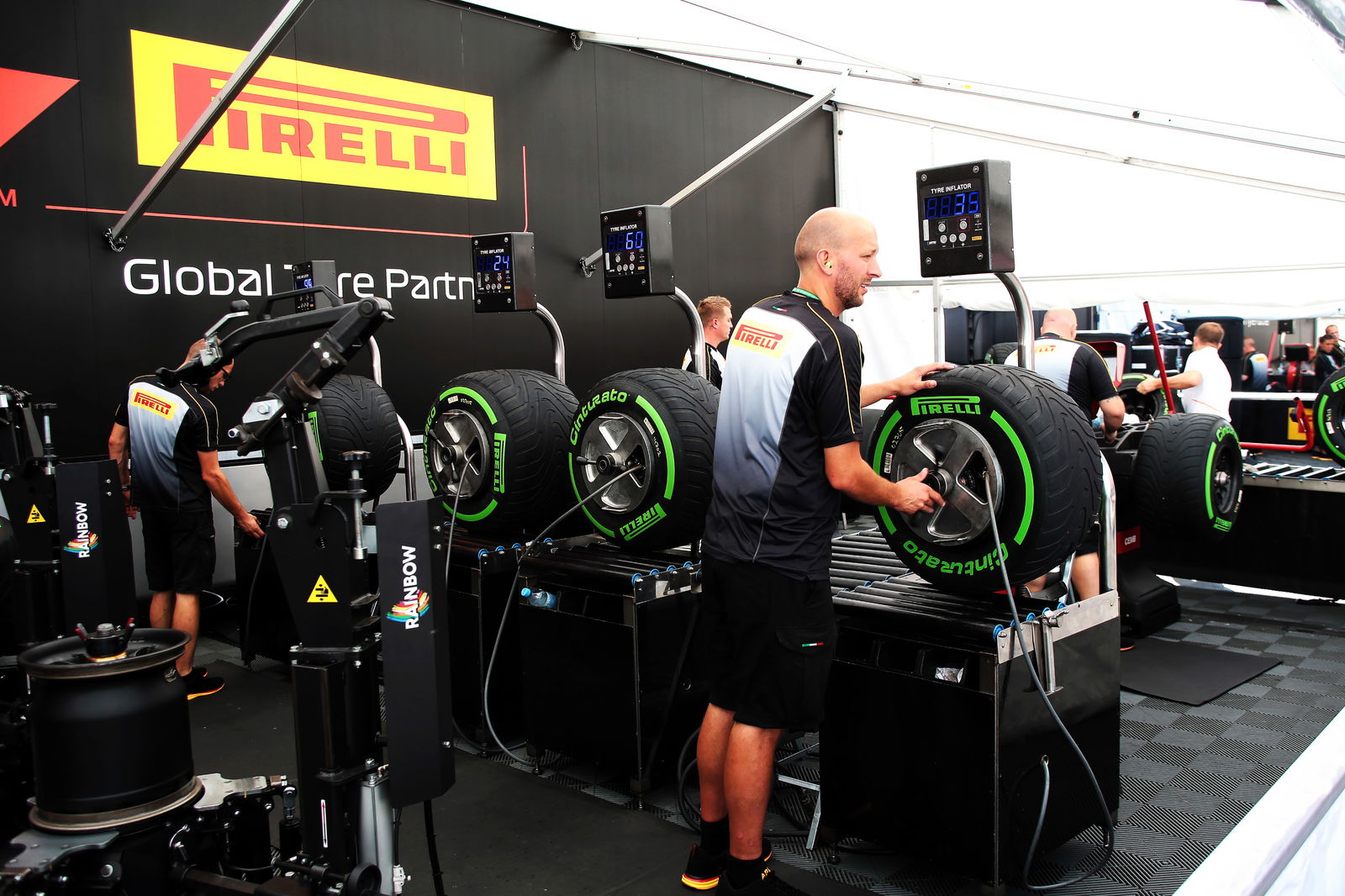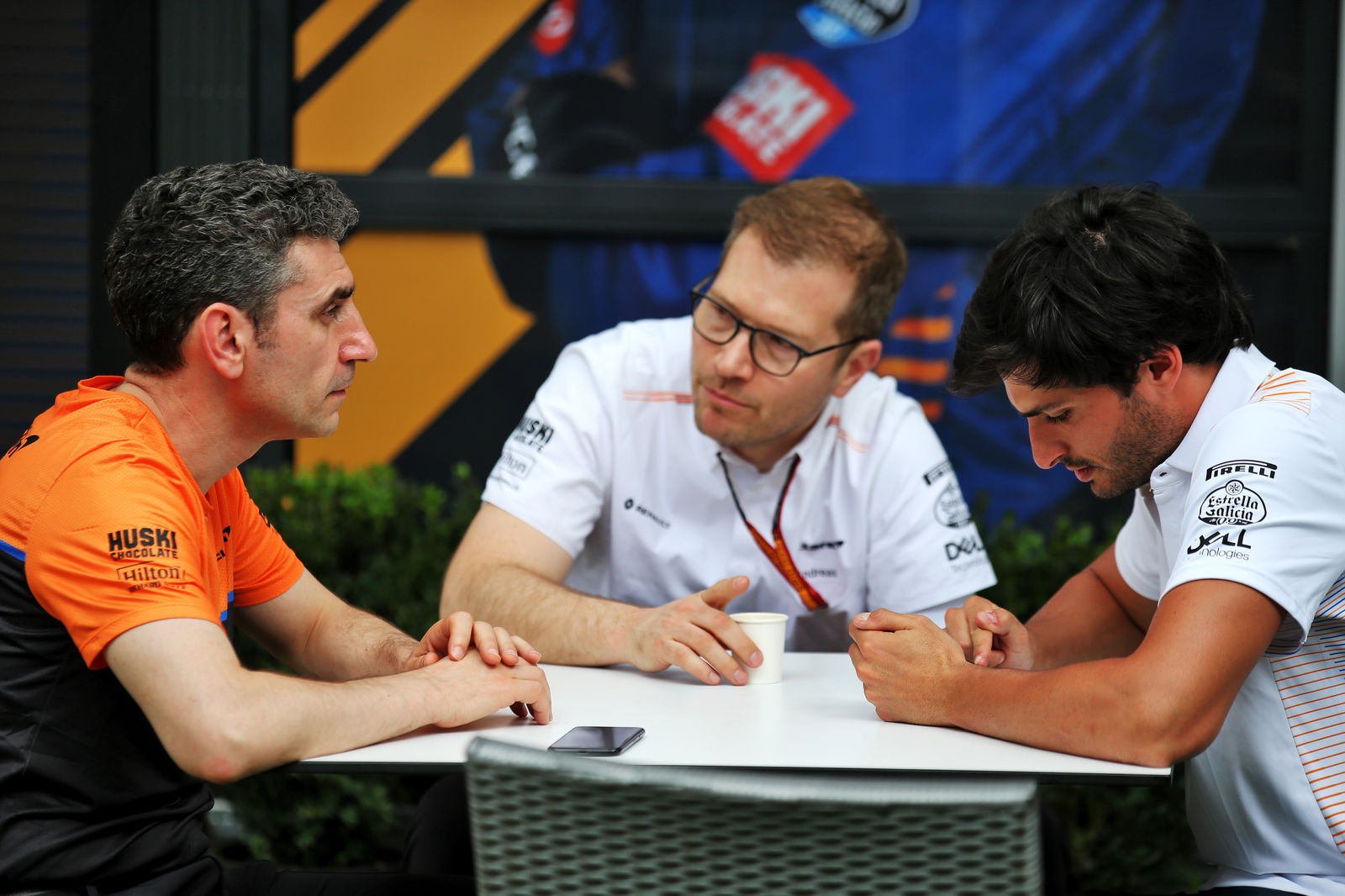How F1's ringleaders can learn from Lewis Hamilton’s outspoken stance
Lewis Hamilton’s outspoken nature has landed him in hot water at times in the past, but Formula 1’s hierarchy could learn a thing or two from his stance at the Australian Grand Prix.
Amid concerns over whether the season-opener in Melbourne would go ahead due to the worsening global coronavirus outbreak, Hamilton was one of the few drivers who was not afraid to speak out.

Lewis Hamilton’s outspoken nature has landed him in hot water at times in the past, but Formula 1’s hierarchy could learn a thing or two from his stance at the Australian Grand Prix.
Amid concerns over whether the season-opener in Melbourne would go ahead due to the worsening global coronavirus outbreak, Hamilton was one of the few drivers who was not afraid to speak out.
Rather than towing the PR-esque party line of putting trust in the decision-makers to make the right call, Hamilton immediately voiced his concerns about stating the Australian Grand Prix in the current climate at the earliest opportunity he got when facing the media for the first time in Melbourne.
“I am very, very surprised we are here,” the six-time world champion said in the drivers’ press conference on Thursday in the Albert Park paddock.
“It's great we have races but it's shocking we are sitting in this room. [There are] so many fans there and it seems like the rest of the world is reacting - probably a little bit late.
“But we are seeing Trump shutting down the borders, the NBA has been suspended yet F1 continues to go on.”
Asked why he felt the race was going ahead as planned, Hamilton quipped back: “Cash is king.”
Hamilton was supported by some drivers including Ferrari’s Sebastian Vettel, a Grand Prix Drivers’ Association (GPDA) director, who said F1 should “pull the handbrake” on the event if needs be, and from Kimi Raikkonen, but no other driver was as forthright in their opinion as the Briton
Hamilton - who regularly uses his platform and voice to try and push positive change for global issues such as the environment and animal welfare - highlighted how conscientious he has become as a character with his moral approach to the wellbeing of not only the F1 paddock and fans, but of wider society as a whole.
It was this kind of approach that F1’s ringleaders were noticeably lacking in their own response to the developing situation.

The Australian Grand Prix was ultimately doomed before it began, yet F1 pressed ahead with plans and was set to ensure the season-opener went ahead, only until a member of McLaren’s race crew contracted COVID-19, subsequently resulting in the British outfit pulling out of the weekend.
In hindsight the approach came across as being reckless and irresponsible, and F1 and the championship’s governing body, the FIA, appeared totally unprepared for such a scenario to the outsider as it took over 12 hours after McLaren’s withdrawal before responding and finally opting to call off the race with less than two hours before the start of free practice on Friday morning.
Communications were hamstrung and delayed by a team vote on whether the race should go ahead and long discussions with race promoters over legal and contractual obligations, but the whole farcical saga ultimately reflected badly on F1 and the FIA.
To allow a situation where the F1 paddock became exposed to the coronavirus, with second positive case confirmed on Monday after Pirelli announced one of its team members was being treated for COVID-19, despite the well-known risks and warnings will leave a black mark against the sport’s controlling bodies for a long time.
Hamilton’s comments were quickly rebuffed by F1 CEO Chase Carey when he faced the media in the wake of the Australian GP’s cancellation. Carey insisted F1’s decision was not driven by financially-motivated reasons but his response appeared to be something of a cheap shot towards Hamilton, rather than addressing the matter properly.
F1 motorsport boss Ross Brawn’s response that he felt the championship did a “pretty good job at reaching the right conclusion” in its handling of the situation seemed baffling at best. There was no sense from F1’s side that things could have been done better.
While F1 has appeared stern in its defence of its decision-making process and handling of calling off the Melbourne race, there is no question that lessons can definitely be learned to avoid the kind of confusion and shambles that dogged a weekend that should have marked the start of the season.
Perhaps the drivers should be handed more responsibility and power in such delicate matters through F1’s driver body.
The GPDA could regain a greater say on the sport like it used to in the past, although not to the same drastic levels as seen in the past during far more serious times regarding driver safety in the 1960s and 1970s when drivers’ lives were risked on an almost weekly basis.
The coronavirus pandemic and its effect on sport worldwide is unprecedented in nature, and while different to past dilemmas F1 has faced, it highlighted the importance of needing strong leadership where health and wellbeing applies.
One sentence in a GPDA statement issued on the eve of the Melbourne, was particularly prevalent.
“We are all in this together and no one takes this situation lightly, but feel the responsibility falls on everyone, the locals as well as us global travellers, to be especially vigilant and cautious in these difficult times the coronavirus pandemic brings upon us all,” it read.
The lack of official comment or advice during the 12 hour-window overnight in Australia left fans, F1 teams and the media in the dark and led to an outpouring of angry and frustrated reactions.
Moving forwards, F1 can certainly make improvements with how it communicates its decisions and take inspiration from Hamilton’s transparent manner.



